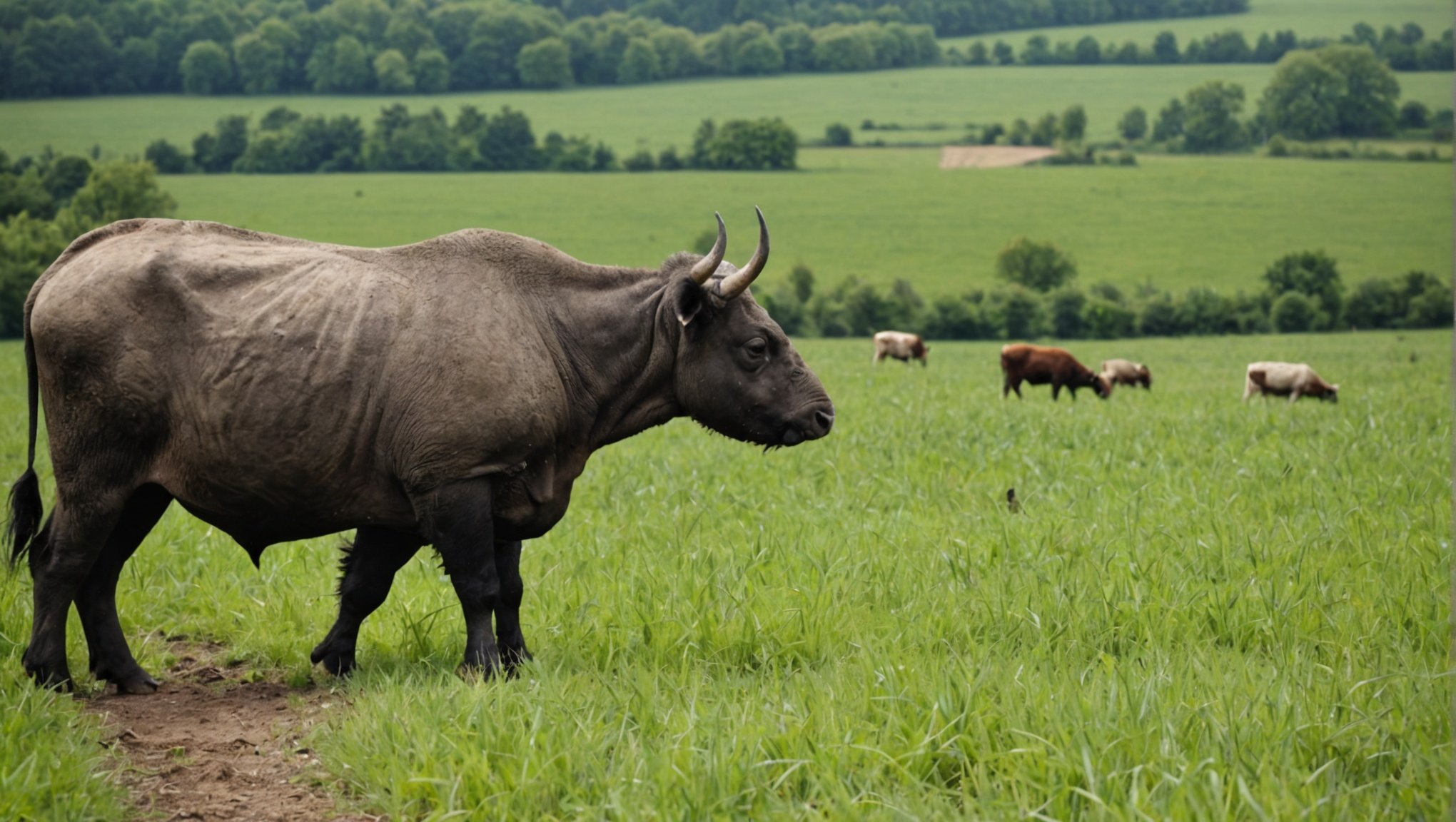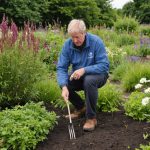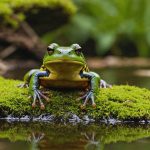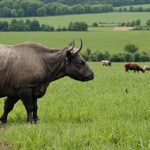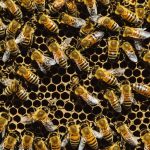The shift to organic farming in the UK holds significant implications for local wildlife. This transition not only highlights sustainable agricultural practices but also redefines habitats across rural landscapes. By reducing chemical use and promoting biodiversity, organic farming can foster healthier ecosystems. Understanding the nuances of this transformation reveals both challenges and opportunities for wildlife. Discover how these changes impact flora and fauna, and explore the balance between farming demands and nature conservation. Join us in examining this vital intersection of agriculture and wildlife.
Overview of Organic Farming in the UK
Organic farming is a method of agriculture that emphasizes the use of natural processes and materials to cultivate crops and rear animals. It avoids synthetic fertilizers, pesticides, and genetically modified organisms, aiming instead to maintain ecological balance and biodiversity. Key principles include crop rotation, green manure, and biological pest control, which are integral to enhancing soil fertility and health.
A voir aussi : The Impact of UK Water Quality Regulations on Amphibian Breeding Habitats: What You Need to Know
In the UK, organic farming has gained traction as a response to increasing environmental concerns and consumer demand for sustainable practices. The sector has grown steadily, with more farmers adopting organic methods as part of their commitment to environmentally friendly agriculture. The UK government supports this shift through incentives and certification schemes, ensuring that organic products meet stringent standards.
When compared to conventional farming, organic farming in the UK offers several advantages. It typically results in lower environmental impact, as it reduces pollution and conserves water and soil quality. However, organic farming can also present challenges, such as lower yields and higher production costs, which may affect profitability. Despite these challenges, the emphasis on sustainable practices continues to drive the organic movement forward, as consumers increasingly prioritize health and environmental considerations in their purchasing decisions.
Dans le meme genre : The Impact of UK Water Quality Regulations on Amphibian Breeding Habitats: What You Need to Know
Effects of Organic Farming on Wildlife Species
Organic farming significantly impacts wildlife species and enhances biodiversity. By avoiding synthetic chemicals, organic practices create a more hospitable environment for various organisms. This method fosters species diversity, supporting a range of native species and populations that thrive in chemical-free habitats. For instance, the presence of hedgerows and cover crops in organic farms provides shelter and food for birds, insects, and small mammals, promoting ecological balance.
Several case studies highlight the positive effects of organic farming on species recovery. For example, the reintroduction of certain butterfly species in the UK has been linked to organic farming’s emphasis on maintaining natural habitats. These practices encourage the growth of wildflowers, essential for pollinators like bees and butterflies, thus aiding their recovery and contributing to the ecosystem’s health.
However, organic farming can also have potential negative effects on certain species or habitats. The absence of targeted pest control measures might lead to an increase in pest populations, which could threaten specific plant species or crops. Moreover, while organic farming supports a wide range of species, it may inadvertently favour some over others, potentially disrupting the existing balance. Balancing these impacts is crucial to ensure the long-term sustainability of organic farming practices.
Habitat Changes Due to Organic Farming Practices
Organic farming practices lead to significant changes in agricultural landscapes. By prioritising habitat conservation, these methods transform land use, promoting an ecological balance that supports diverse ecosystems. Traditional farming often involves monoculture, which can deplete soil nutrients and reduce habitat variety. In contrast, organic farming utilises crop rotation and cover crops, enhancing habitat diversity and providing varied food sources for wildlife.
Changes in Agricultural Landscapes
The shift to organic farming alters landscapes by integrating natural elements like hedgerows and buffer zones. These features serve as corridors for wildlife, linking fragmented habitats and enabling species movement. Organic farms often incorporate habitat conservation strategies, such as maintaining wildflower margins, which support pollinators and other beneficial insects.
Alterations in Soil Health
Organic practices significantly impact soil health by fostering soil biodiversity. The absence of synthetic chemicals allows a thriving community of microorganisms, essential for nutrient cycling and soil structure. This improved soil health supports plant growth and resilience, contributing to a balanced ecosystem.
Impact on Food Sources for Wildlife
Organic farming enhances food sources for wildlife through diverse planting and habitat restoration initiatives. Crop rotation and cover crops provide continuous food availability, supporting species like birds and small mammals. These practices ensure a stable food supply, promoting wildlife health and diversity.
Ecological Balance and Biodiversity Enhancement
Organic farming plays a pivotal role in maintaining ecological balance and enhancing biodiversity. By prioritising natural processes, these practices support diverse ecosystems and offer vital ecosystem services. Organic farms contribute to water purification, soil fertility, and carbon sequestration, benefiting both agriculture and the environment.
Strategies for Enhancing Biodiversity
To bolster biodiversity enhancement, organic farms employ various strategies. Crop rotation and polyculture increase habitat diversity, providing different niches for wildlife. Hedgerows and cover crops serve as habitats and corridors, facilitating species movement and interaction. Additionally, organic pest management techniques, such as biological control, minimise chemical interventions, fostering a more balanced ecosystem.
Recommendations for Integrating Wildlife Conservation
Integrating wildlife conservation into farming practices can further promote ecological balance. Farmers are encouraged to:
- Maintain and restore natural habitats, like wetlands and woodlands, within farm boundaries.
- Implement buffer zones around fields to protect sensitive areas and provide wildlife corridors.
- Promote the use of native plant species to support local fauna.
By adopting these strategies, organic farms can enhance ecosystem services, ensuring a sustainable and harmonious relationship between agriculture and the natural world. This approach not only benefits the environment but also supports the long-term viability of farming operations.
Expert Opinions and Future Directions
The future of farming is being shaped by insights from ecologists and agricultural experts who emphasize the importance of sustainable practices. According to these experts, integrating conservation strategies is crucial for maintaining biodiversity and ecological balance in organic farming. Current research trends focus on enhancing soil health, increasing crop resilience, and developing effective biological pest control methods. These strategies aim to reduce reliance on synthetic inputs while promoting ecosystem services.
Ecologists highlight the role of organic farming in mitigating climate change through carbon sequestration and improved soil management. Agricultural experts stress the need for innovation in crop varieties and farming techniques to address the challenges posed by climate variability and resource scarcity. This includes breeding crops that are more resilient to pests and diseases and developing water-efficient irrigation systems.
Future challenges for organic farming involve balancing productivity with environmental conservation. As demand for organic products grows, there is an opportunity to expand organic practices while ensuring sustainable resource use. Experts also foresee the potential for collaboration between farmers, researchers, and policymakers to develop policies that support organic farming and wildlife conservation. By adopting these expert insights, the future of farming can be both productive and environmentally responsible.

